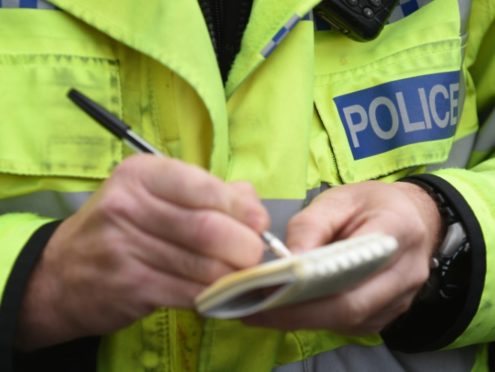A child with autism was removed from an Inverness primary school in the back of a police van earlier this week.
Officers confirmed they were called to Inshes Primary School following a disturbance involving a pupil around 1.30pm on Thursday.
A police spokesman said: “The child was escorted home by police and left in the care of a family member.
“Nobody was seriously injured as a result.”
Witnesses among parents who were waiting to pick up children at the school didn’t want to be named, but it’s believed the child had a ‘meltdown’ involving alleged violence towards a teacher.
A Highland Council spokeswoman said: “Police were called to attend the school yesterday. We cannot comment on individual pupil circumstances.”
Children’s and disabled rights campaigner Beth Morrison called the incident ‘appalling and barbaric.’
Mrs Morrison is founder and chief executive of Positive and Active Behaviour Support Scotland (PABSS).
She founded the organisation after her own son Calum, who has epilepsy, cerebral palsy and autism, was forcibly restrained face down by four teachers at his specialist school in Angus and nearly died.
She said: “Most people see a child behaving inappropriately and go into a punitive control-and-manage response.
“But children with special needs can’t verbalise, and when they are distressed, it’s because their needs aren’t being met and they are extremely anxious.
“The fact that the child’s behaviour had escalated to that extent shows he wasn’t being properly supported by the school.”
Last year, Mrs Morrison became one of the Saltire Society’s Outstanding Women of Scotland for her campaign to persuade the Scottish Government to introduce new guidance on the use of restraint and seclusion in schools.
The main aims of her petition were also backed the United Nations Convention on the Rights of the Child.
She advocates for people who come into contact with learning-disabled children to have training in offering positive behaviour support.
She said: “Often pupil support assistants are low-paid, unsupported and lacking in training. They don’t understand and don’t respond appropriately.
“At the moment I am dealing with 711 cases of restraint, seclusion or isolation of children in the UK, of which 70 are in Highland.
“Not one of those cases is a neurotypical child, so why is it appropriate to treat the most vulnerable as less than human beings?
“Autistic children forget nothing, these experiences live with them for life.
“My son is 20 now and still has nightmares about what happened to him.”
